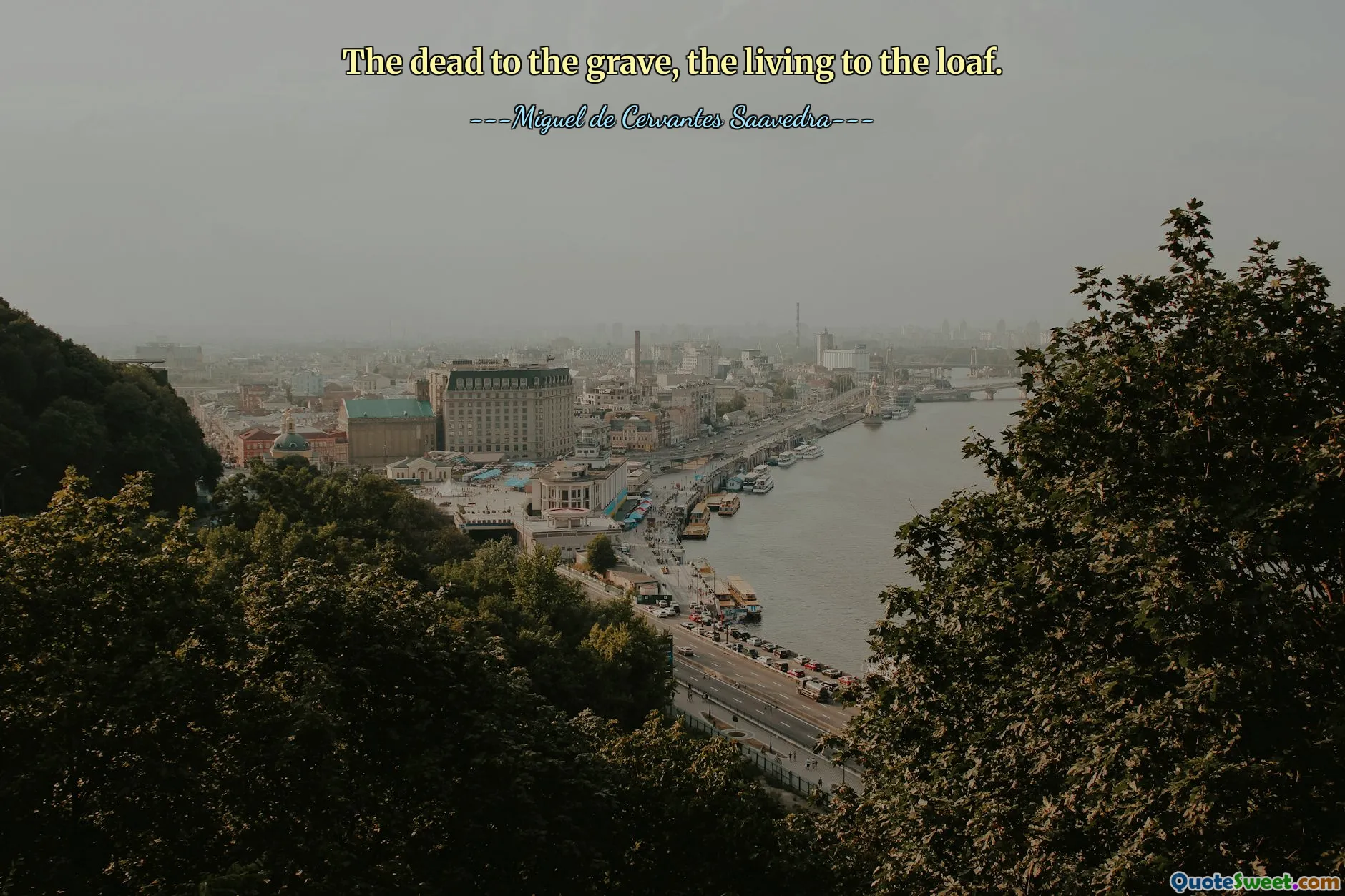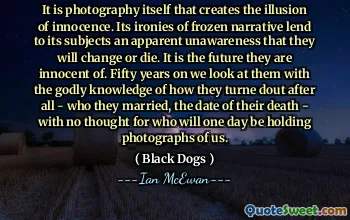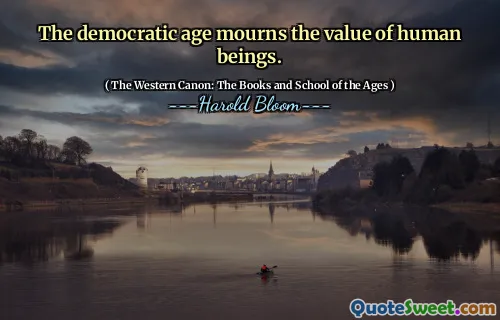
The dead to the grave, the living to the loaf.
This quote by Miguel de Cervantes Saavedra encapsulates a fundamental truth about the human condition—death is inevitable, reserved for the grave, while the living must focus on sustenance and survival, symbolized here by the loaf of bread. It touches on the dichotomy between the finality of death and the ongoing struggles and necessities of life. From a broader perspective, it invites contemplation on priorities and perseverance. While the dead require no more from the world, the living are bound to the earth through their basic needs and efforts to sustain themselves.
Digging deeper, we see an implicit call to action and acceptance. There is no point in overly mourning or dwelling on death when one belongs to the living and must therefore engage with life's practicalities. It humbles individuals to acknowledge their mortality (the dead to the grave) but immediately redirects attention to the present and the concrete—the loaf, a metaphor for everyday survival and labor.
Moreover, the quote can be appreciated in a social and historical context. Bread has long symbolized not just nourishment but also economic status, societal structure, and human dignity. For Cervantes’ era, and even today, securing "the loaf" characterizes the human struggle for survival, equity, and well-being. It recognizes the shared human experience of working, striving, and living despite uncertainties and hardships.
In a philosophical light, this quote may encourage embracing the reality of life's constraints while still finding purpose and meaning within those boundaries. The living’s focus on the loaf reflects the journey of sustaining oneself emotionally, physically, and spiritually despite the shadow of mortality looming ever near.
Ultimately, this simple yet profound statement calls us to remain grounded. To accept death as an immutable truth is to release fear and despair. And to focus steadily on life's essentials empowers resilience, allowing one to face each day with steadfastness and hope.







